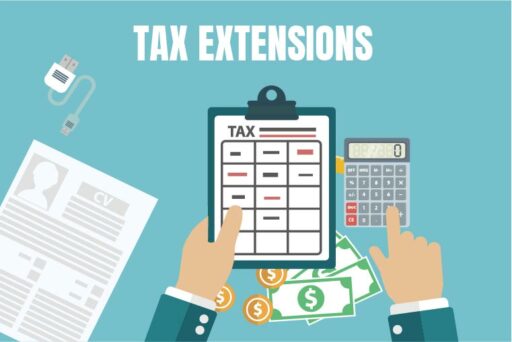Travel expenses, which cover costs incurred during work-related travel, are an essential component of business operations. These expenses, which include transportation, lodging, and meals, can quickly add up. Understanding which expenses are deductible and how to manage them effectively is critical for business owners and employees.
In this article, we’ll discuss the basics of business travel expenses, including what qualifies as deductible, the importance of proper documentation, and how Cleer Tax can help simplify the process. Let’s dive in!
Key Takeaways
- Deductions apply only to ordinary and necessary business travel expenses. Expenses considered unreasonable, lavish, or extravagant are not eligible for deduction.
- Travel expenses are only tax-deductible if they are incurred for the purpose of conducting business.
- For tax purposes, business travel expenses incurred during an indefinite work assignment exceeding one year are not eligible for deduction.
- Examples of travel expenses eligible for deduction comprise airfare and accommodations, transportation services, meal costs and tips, and the use of communication devices.
What are Travel Expenses?
Travel expenses include the costs associated with business travel activities. Typically, a business can deduct reasonable travel expenses from its taxable income, particularly when employees incur expenses while away from their usual residence for business purposes.
Understanding Travel Expenses
Travel expenses include fuel, taxi, bus, metro, airfare, and other transportation costs. When driving a personal vehicle, such as a two- or four-wheeler, expenses include petrol or diesel per kilometer for the entire trip.
Expenses for public transportation include taxi/ride service hire, metro rail services to and from the airport or business-related events, and air ticket costs. The entire cost of travel from home to destination is deductible, as well. Tolls and interstate permits can also be claimed as travel expenditures. Furthermore, expenses for meals, tips, dry cleaning services for clothes, business-related phone calls while away from home, and costs associated with computer rental and other communication devices may be considered eligible travel expenses.
What Are Reasonable Business Travel Expenditures?
Transportation to and from the business location, lodging, and meal expenses are all examples of reasonable travel expenditures determined by an employer or the IRS. Business supplies and equipment for working away from home are considered reasonable. Additionally, expenses for taxis or Ubers used during a business trip are deemed reasonable.
Travel expenses must be regular and necessary. They cannot be lavish, extravagant, or for personal use.
Can Individuals Deduct Business Travel Expenses?
Individuals are no longer eligible to deduct business travel expenses. However, if you are self-employed or run your own business, you can deduct “ordinary and necessary” business expenses from your tax return.
If you work for a company that reimburses you for business travel costs, your employer will handle the deduction when you file your taxes.
Deductions do not apply to travel expenses incurred during personal trips. Only the portion directly related to business can be deducted when personal and business trips are combined. Personal travel expenses, as well as those of spouses and other relatives, are not deductible.
Travel expenditures that can be deducted from taxes include, but are not limited to, the following:
- Travel between home and the place of business by car, train, bus, or airplane
- The cost of a taxi or other form of transportation from an airport, train station, or hotel to a place of employment
- Transporting samples, display materials, and luggage between regular and temporary work sites
- Using a personally owned car for business purposes
- Accommodation and meals
- Laundry and Dry Cleaning
- Business phone calls and communications
- Tips for services rendered in connection with any of these costs
- Other ordinary and necessary expenses related to business travel
Is It Necessary to Have Receipts for Travel Expenses?
Certainly, whether you are looking for reimbursement as an employee or a tax deduction as a business owner, you must keep track of your expenses. Keep an organized log of your expenses and save all receipts to ensure you don’t face consequences down the line for not having your finances in order.
Note: Travel expenses incurred while on an indefinite work assignment lasting over one year are not eligible for tax deductions.
Importance of Compliance Regarding Travel Expenses
Compliance with tax regulations regarding travel costs is of utmost importance for businesses to maintain financial integrity and avoid potential legal issues. Here’s why compliance matters:
- Avoiding Penalties: Failing to comply with tax regulations related to travel expenses can result in penalties imposed by tax authorities. These penalties can range from fines to interest charges on unpaid taxes, leading to financial strain for the business.
- Preventing Audits: Non-compliance with tax regulations increases the likelihood of being selected for an audit by tax authorities. Audits can be time-consuming, costly, and disruptive to business operations. By ensuring compliance with tax regulations, businesses can reduce the risk of being audited.
- Maintaining Reputation: Compliance with tax regulations is essential for maintaining the reputation and credibility of the business. Non-compliance can damage relationships with stakeholders, including clients, investors, and business partners, leading to reputational harm and loss of trust.
- Financial Planning: Proper compliance with tax regulations allows businesses to accurately track and report their financials, enabling better financial planning and decision-making. Compliance ensures that businesses can claim eligible deductions while minimizing the risk of penalties or audits.
Can Cleer Tax Help Business Owners Maximize the Deductibility of Their Travel Expenses?
If you need clarification on which travel expenditures are deductible, there’s no need to worry. Cleer Tax is here to help you gain clarity on the deductibility of your travel expenses. Book your consultation today! In addition to enhancing your understanding of travel expenses, Cleer also delivers precise, cost-effective, and efficient bookkeeping and tax services—where we do it for you!
Reclaim the time spent on bookkeeping and redirect your focus to what you do best—running your business! If you have any other questions, email our customer success team at hello@cleer.tax.






